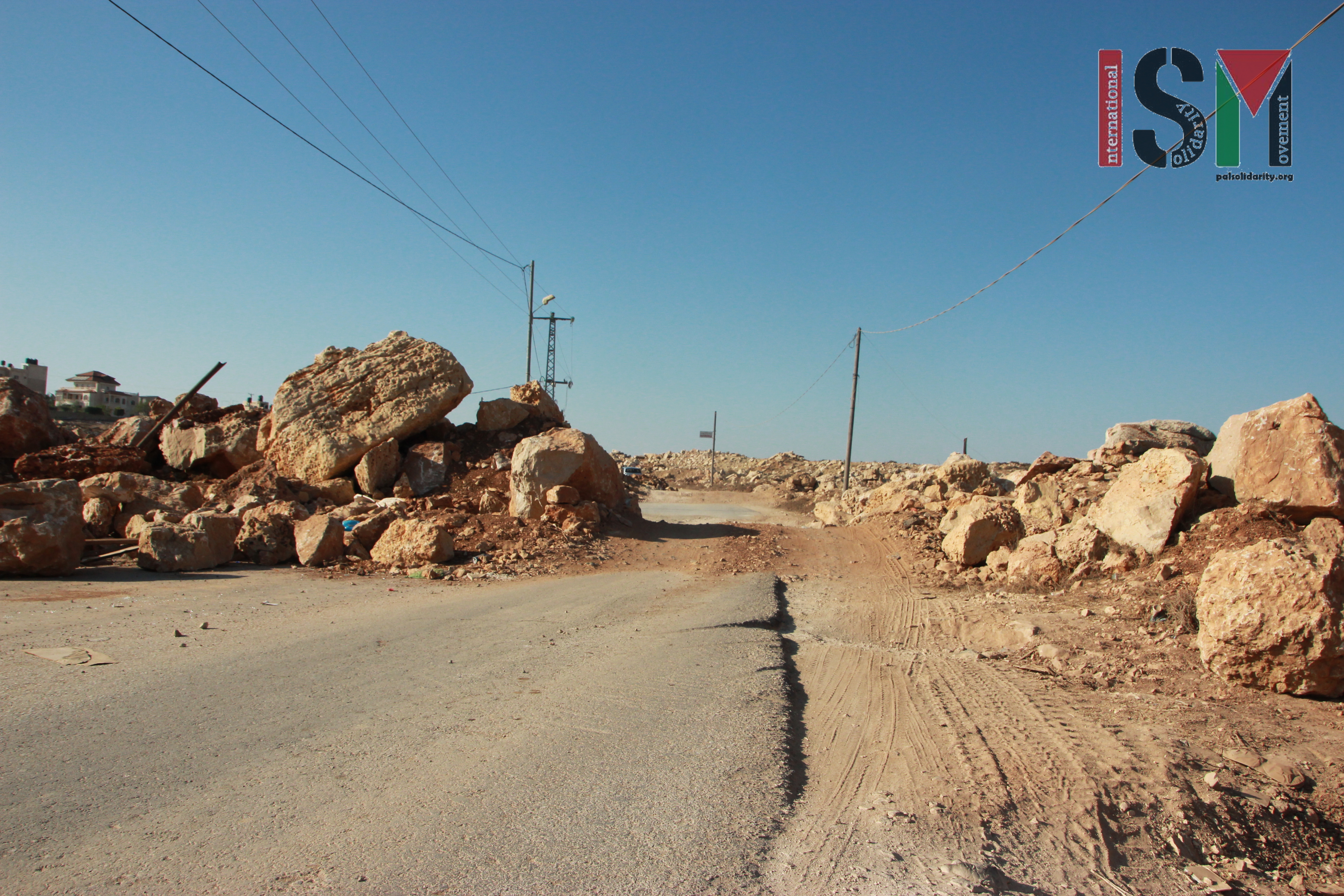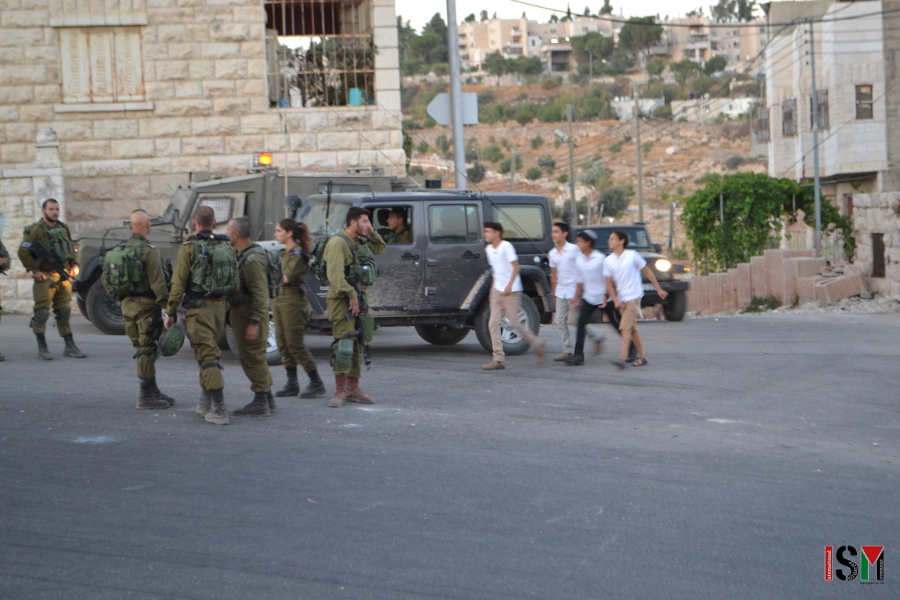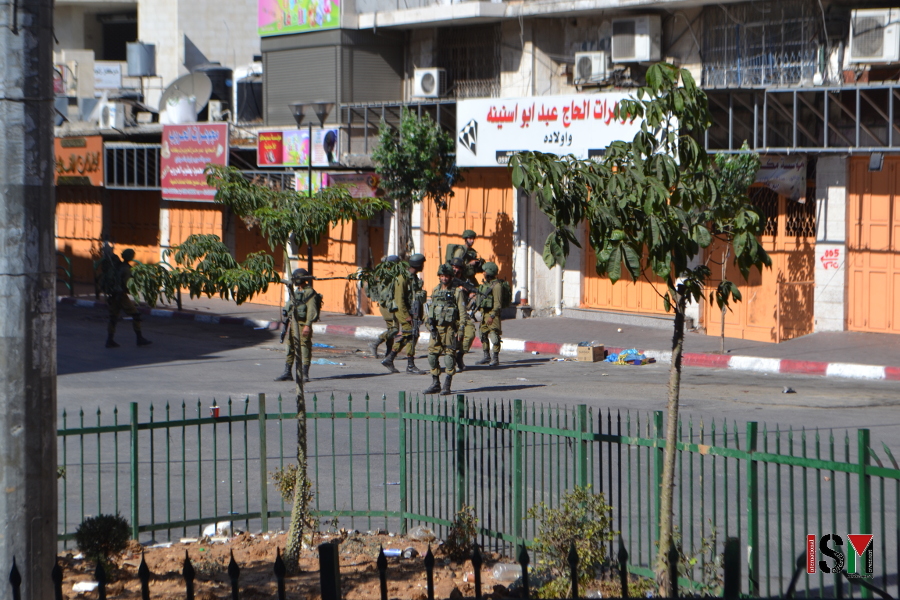-
Settlers from illegal Halamish settlement block Route 450 for Palestinians in revenge
20th August 2017 | International Solidarity Movement, Huwwara-team | Nabi Saleh, occupied Palestine On 23rd July, two days after the killing of three settlers from the illegal settlement of Halamish, settlers blocked Route 450 with self-made barricades preventing Palestinians from using the main road, which connects Nabi Saleh village with the south Baytillu . The […]
-
Heavy military presence on important road in Hebron
20th August 2017 | International Solidarity Movement, al-Khalil team | Hebron, occupied Palestine On Friday evening the Al Khalil team surveyed the intersection of prayer road. The route leading north towards the illegal settlement Kiryat Arba had Israeli soldiers posted all along, with several military vehicles stationed by the intersection. Both settlers and Palestinians crossed […]
-
Friday protest in occupied Hebron
20th August 2017 | International Solidarity Movement, al-Khalil team | Hebron, occupied Palestine Last Friday, 18th of August, during a protest in front of checkpoint 56 in Hebron, a group of young Palestinians were demonstrating against the illegal occupation of Palestine. The Israeli forces violently dispersed the crowd, by illegally entering the H1 area in […]
Action Alert An Nabi Saleh Apartheid Wall Arrests BDS Bethlehem Bil'in Cast Lead Demonstration Denial of Entry Ethnic Cleansing Farmers Gaza Global Actions Hebron House Demolition International law Israeli Army Jerusalem Live Ammunition Nablus Ni'lin Prisoner Ramallah Rubber-coated steel bullets Settlement Settlers Settler violence Tear-Gas Canister Video



